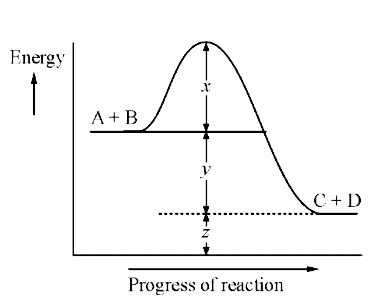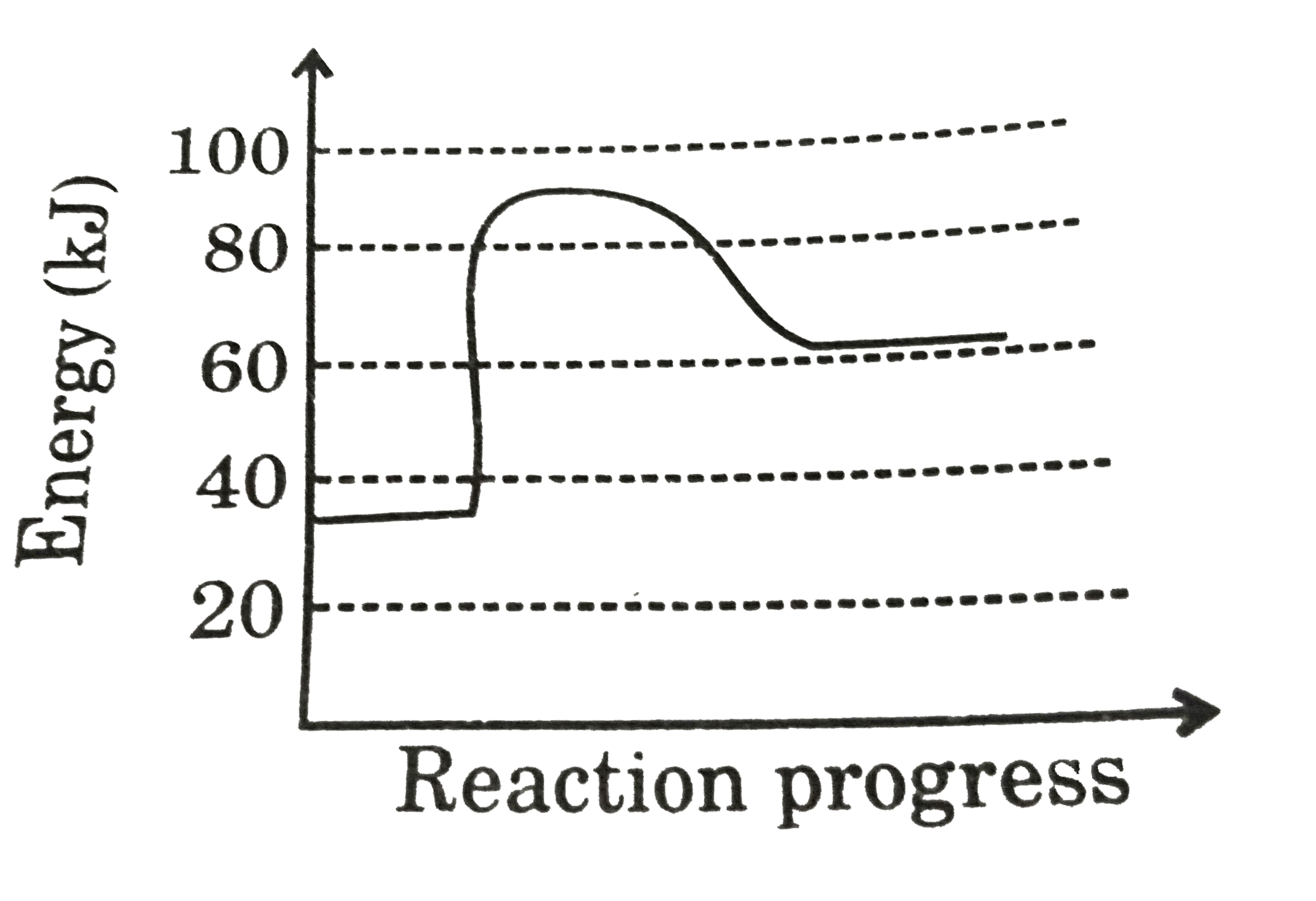A reaction A+B→C+D+q is found to have a positive entropy change, the reaction will be:
possible at high temperature
possible only at low temperature
not possible at any temperature
possible at any temperature
For a ractions to be spontaneous, ΔG should be negative.
ΔG=ΔH−ΔS
According to the question, for the given, reaction,
ΔS= positive
ΔH =negative (since heat is evolved)
⇒ΔD= negative
Therefore, the reactions is spontaneous at any temperature.
Hence, alternative (iv) is correct.
Topper's Solved these Questions
Similar Questions
A reaction, A+B→C+D+q is found to havea positive entropy change. The reaction will be
(i) possible at high temperature (ii) possible only at low temperature
(iii) not possible at any temperature (iv) possible at any temperatureView SolutionGiven the following diagram for the reaction A+B→C+D The enthalpy change and activation energy for the reverse reaction, C+D→A+B are respectively.
 View Solution
View Solution
Knowledge Check
- Question 1 - Select One
A reaction A+B→C+D+q is found to have a positive entropy change. The reaction will be
Apossible at high temperatureBpossible only at low temperatureCnot possible at any temperatureDpossible at any temperature. - Question 2 - Select One
If an endothermic reaction is found to have +ve entropy change, then the reaction will be:
APossible only at low temperatureBPossible at any temperatureCPossible at high temperatureDNot possible at any temperature - Question 3 - Select One
An exothermic reaction has a large positive entropy change. The reaction will be -
APossible → Spontaneous at all temperaturesBPossible → Spontaneous at low temperatures onlyCImpossible → Non-spontaneous at all temperaturesDPossible → Spontaneous at high temperatures only
Given the following diagram for the reaction A+B→C+D The enthalpy change and activation energy for the reverse reaction, C+D→A+B are respectively.
 View Solution
View SolutionEntropy will not change for the reaction
View SolutionAdjoining diagram, represents the energy profile for the reaction : A+B→C+D. What is the valye of the activation energy for the reaction ? C+D→A+B ?
 View Solution
View SolutionIn a reaction P+Q→R+S, there is no change in entropy, Enthalpy change for the reaction (ΔH) is 12 kJ mol−1. Under what conditions, reaction will have negative value of free energy change?
View SolutionIn a reaction P+Q→R+S, there is no change in entropy, Enthalpy change for the reaction (ΔH) is 12 kJ mol−1. Under what conditions, reaction will have negative value of free energy change?
View Solution
